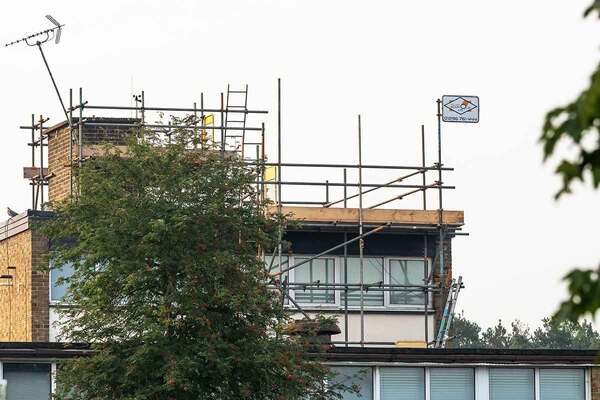A quiet revolution is happening around tenant influence
Four years after Grenfell, investment in tenant engagement is finally high on the agenda, writes Jenny Osbourne, chief executive of Tpas
What a strange but interesting year it’s been for housing and for tenant engagement. When lockdown first struck in March last year, landlords obviously moved into crisis mode, and we all battened down the hatches for the first few weeks.
However, it quickly became clear that this wouldn’t do. I believe that as a sector overall we have risen to the occasion, learned new ways to work together, and developed new approaches to service delivery.
For people who maybe thought that tenant engagement is all about meeting in common rooms and community halls, the past year will have been a revelation. At Tpas, we thought we knew plenty about how adaptable our members could be, but we’ve still been blown away with how they’ve embraced online engagement. Change that we thought would take years has taken weeks, and across many organisations it has brought in a new group of tenants and residents, to add to the established voices.
The ability to join discussions from home – without the need to juggle work, transport and childcare – has welcomed people who just weren’t able to be involved before. The technology has genuinely been an enabler.
During the pandemic, we’ve also been taking cautious steps into the world of behavioural insight – looking at how landlords can learn from their tenants’ actions, as well as their words – and it’s been really illuminating to see the technology working alongside more traditional approaches. But we also know that tech-based collaboration isn’t for everyone, and we’re clear that face-to-face meetings will always be an important part of the mix for effective tenant engagement.
So the pandemic that has destroyed so many lives and damaged so much has actually made us stronger in engagement terms in some ways. And although the government’s attention has largely been elsewhere, there has been positive development in some of our other social housing institutions.
I’ve been impressed by the Housing Ombudsman’s speed and decisiveness, and the fact that it has used its new powers in ways that add real value and help everyone learn from things that go wrong. It’s also great that it has set up its resident panel. I know that it was amazed and delighted by the number and quality of applicants, and that it decided to expand the number of members from what it originally had in mind.
Change was already well under way at the ombudsman by the time the Social Housing White Paper was published, but it was good to see it highlighted in there.
It was also really positive to see the plans for social housing regulation. We’ve been long-term advocates of a more proactive approach to consumer regulation, so I’ve been very pleased to see – and be involved in – the way the Regulator of Social Housing has been forging ahead with plans for its expanded remit.
And it’s good to know that the detailed plans will be developed in consultation with residents.
The same goes for the Decent Homes consultation. The Ministry of Housing, Communities and Local Government has issued an open invitation to register as a stakeholder, and we’ve been encouraging our members to get involved. It feels like a link back to those ministerial roadshow sessions, with policymakers hearing directly from tenants.
Tenant engagement: a timeline
October 2010: government confirms plans to close down Tenant Services Authority
July 2015: Four-year, one per cent rent cut is announced, triggering landlords to slash budgets
June 2017: Grenfell Tower fire on 14 June kills 72 people
Autumn 2017: Then-housing minister Alok Sharma begins series of tenant roadshows
October 2019: Grenfell Tower Inquiry phase one report issued
January 2020: Building Safety Regulator announced. Phase two of Grenfell Tower Inquiry begins
July 2020: Draft Building Safety Bill published
September 2020: New, tougher Housing Ombudsman scheme comes into force, with new powers including complaint-handling failure orders
November 2020: Government publishes Social Housing White Paper
January 2021: Regulator of Social Housing appoints first director of consumer regulation, due to start
this summer
April 2021: Housing Ombudsman announces 600-person resident panel
The most obvious policy impact of the Grenfell Tower fire, now four years ago, is on the Building Safety Bill. There’s still a lot to be done, but we’re feeling positive about the expected requirements for resident engagement.
We’ve been working with our members to learn from their good practice, and bring together some guidance for organisations in the ‘accountable person’ role. And the new Building Safety Regulator is another sector body that’s going to be hearing directly from tenants, with a resident panel planned to include residents of all kinds. It’s great to see so much of the change in the sector being opened up to tenants’ and residents’ views.
There’s no denying that we’re still disappointed at the lack of progress on a national voice for tenants, though. It was a big omission from the white paper, as was the lack of any actual ideas about how government could start to tackle the stigma that still affects so many social housing tenants.
It seems like there’s some kind of disconnect regarding stigma and the constant promotion of homeownership. It was frustrating that the white paper – The Charter for Social Housing Residents – included that final chapter on homeownership. After the positive words of the preceding chapters, it felt like a bit of a slap in the face, as if being a tenant was some kind of failure. We’d have liked to hear more about social housing in the Queen’s Speech as well, although it wasn’t a surprise that the focus was more on other areas.
Overall, though, there’s been a lot of progress, which has been particularly welcome in recent weeks, as phase two of the Grenfell Inquiry has been reminding us just how catastrophic it can be to ignore the voices of tenants and residents.
Where landlords had cut budgets in response to the one per cent rent settlement in 2015, lots are now investing in resident engagement ahead of consumer regulation. It’s taken a while to get here, four years from Grenfell, but we’ve come a long way from when the Tenant Services Authority was deemed “toast”.
Although lockdown has been tough, we’ve learned a lot. And it looks like there are plenty of opportunities to use our new skills, to support tenants and their landlords and show politicians and policymakers what we’re made of.
The headlines may be all about new ways to do homeownership, but there’s a quiet revolution going on in terms of resident influence. The days of silencing tenants’ voices need to be put well and truly behind us.
Jenny Osbourne, chief executive, Tpas
RELATED









